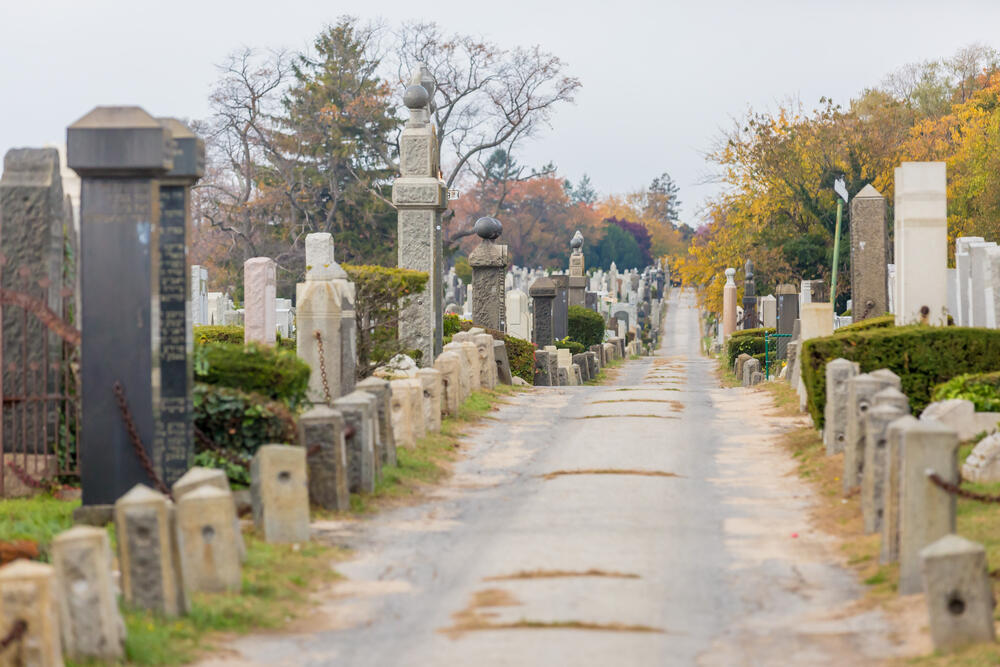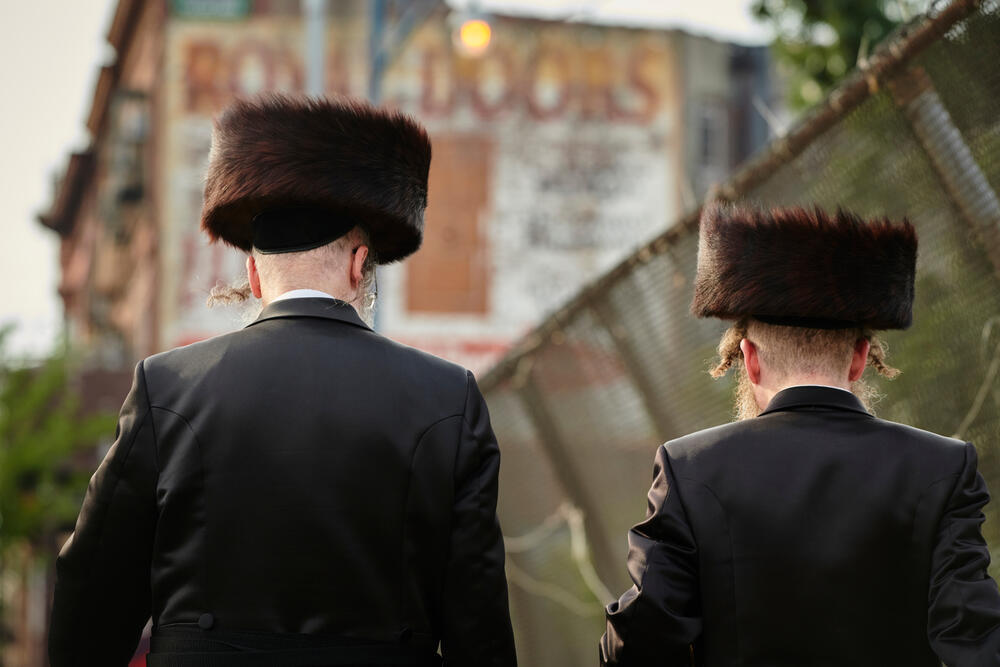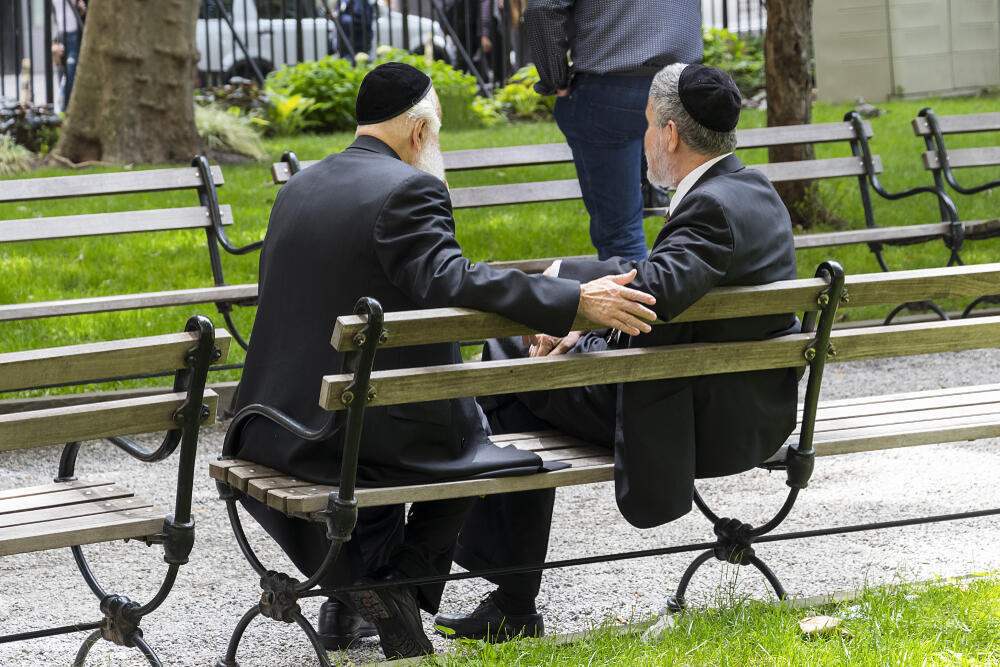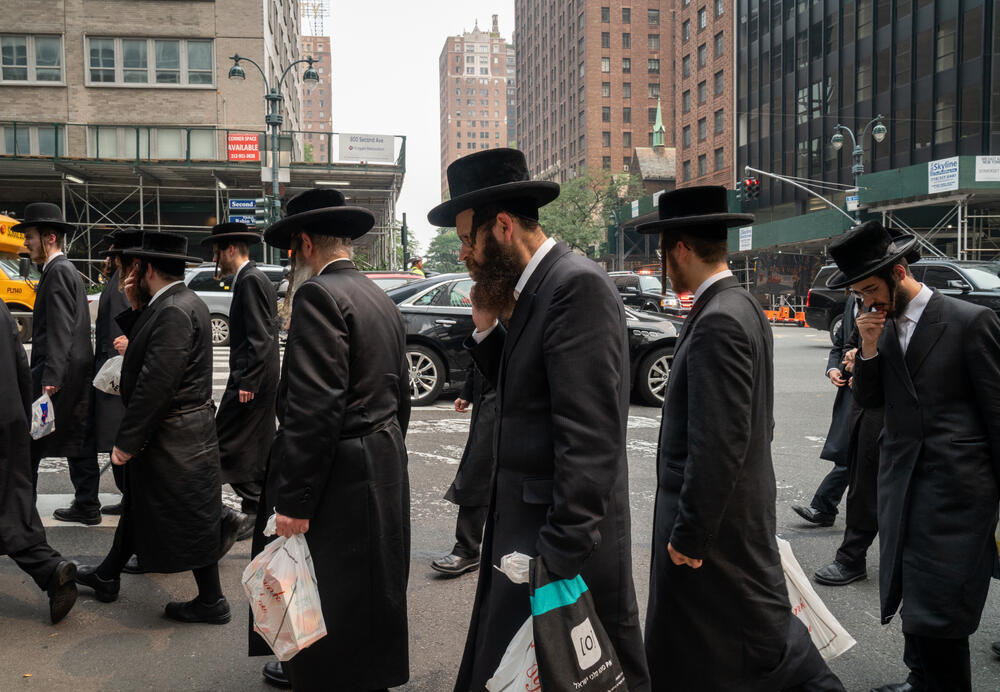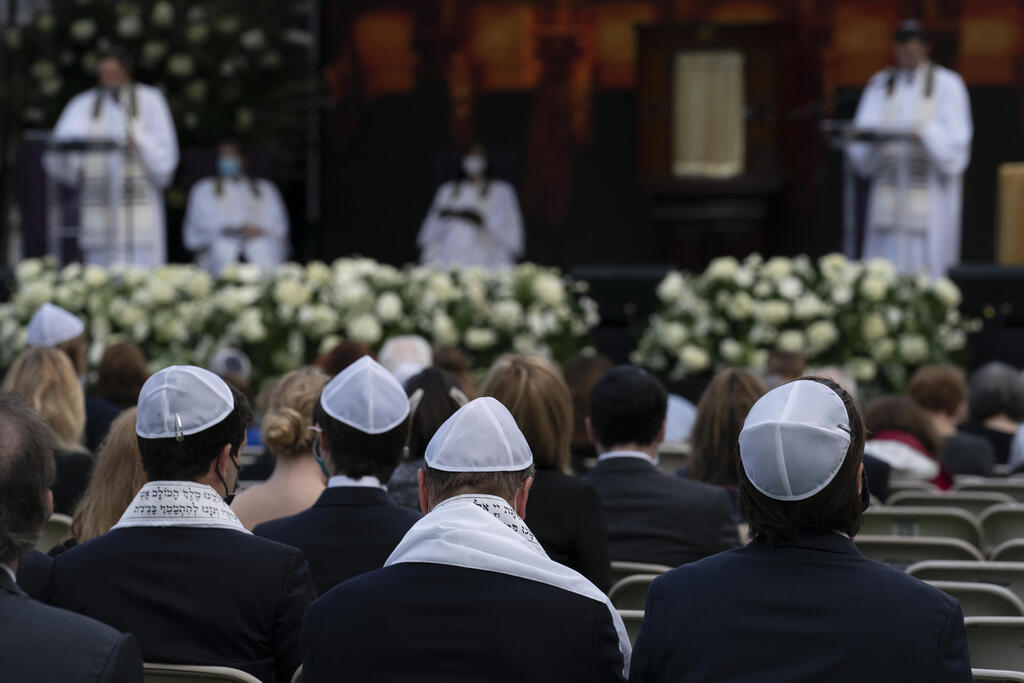Getting your Trinity Audio player ready...
New York’s Rockland County has transformed in recent years from a tranquil rural area into a battleground between the local residents and the county's ultra-Orthodox population, which constitutes around 15% of the county's inhabitants and is primarily concentrated in ultra-Orthodox towns like Monsey, New Square and Kaser.
More stories:
Over the past week, it seems these conflicts have reached new heights, following the recent funeral in the county held for a prominent United States Hasidic leader, Rabbi Chaim Yaakov Twersky.
As the rabbi's body was escorted to the community's Har Shalom cemetery, the funeral procession disrupted traffic and led to road congestion and the closure of access routes in the area, including the only road leading to the nearby village of Chestnut Ridge, with a population of around 8,000 residents.
The town’s angery residents sent a letter through their attorney to the cemetery, where they objected to the "unmitigated disaster" that occurred, demanding that from now on they receive at least a six-month advance notice for any funeral that might disrupt traffic.
In the letter, the village's attorney, Alek Shah, argued that the cemetery specifically knew to give advanced notice to both the police and the officials of the neighboring municipalities of Airmont and Ramapo about potential traffic disruptions resulting from a large presence at the funeral. However, for some reason, they didn't bother to inform the town located closest to the site.
“Har Shalom never took appropriate action to properly advise, notify or consult the Village of Chestnut Ridge or Chestnut Ridge residents. Chestnut Ridge officials, including the mayor or its Village Board of Trustees, were never consulted or even so much as provided any advance notice of the significance of the funeral. All of this was despite the fact that Har Shalom at all times contemplated, and did in fact, close major streets in Chestnut Ridge," he wrote.
"Due to the foregoing failures of Har Shalom, hundreds of Chestnut Ridge residents were unable to return to their own homes or make their appointments for hours because major thoroughfares and arteries in Chestnut Ridge were closed due to the Grand Rabbi's funeral,” he added.
Shah also noted the funeral was over only at 9 p.m., “yet critical roads stayed closed until nearly midnight. As we are sure you can imagine, this had an outrageous and unacceptable impact on Chestnut Ridge residents and taxpayers who were not even paid the respect of appropriate notice so they could plan accordingly. This will never be tolerated again."
He concluded his letter by demanding that “Har Shalom provide advance notice to the village for any and all future funerals that will require any road closures that may impact Chestnut Ridge residents. If there is any anticipated funeral or related procession or event such that Har Shalom orchestrates a plan ahead of time, the notice must be provided at least six months in advance and Chestnut Ridge officials consulted so proper traffic plan arrangements can be made to minimize adverse impact on Chestnut Ridge residents.”
The ultra-Orthodox community's answer
The seemingly absurd demand stirred up a wave of discontent among the area’s ultra-Orthodox residents. Some of them took to social media saying that Jewish law prohibited attempts to predict the future.
In response to Ynet's inquiry, the village explained the statements were taken out of context and, in reality, preparations were being made for the rabbi’s funeral at the cemetery, who had been suffering from a deteriorating health condition, for about a year.
"We requested a six months early notice to try and better protect the residents from the catastrophic situation that occurred on Wednesday, when the village's roads were closed and residents were unable to return to their homes for hours," the village’s statement read.
"We understand that the cemetery anticipated road closures, traffic situation and crowd density for over a year in advance. The cemetery even hired a consulting company to assist with the funeral’s planning. Unfortunately, despite being planned for over a year, the village was never notified or consulted about the matter,” the statement also said.
Har Shalom cemetery, however, took the town’s request seriously and said it would comply with it so long as “Har Shalom is notified of an impending death that may result in such anticipated funeral six months in advance of the occurrence.”
“However, as discussed, it cannot advise as to any anticipated road closures as it has no authority or control over which roads law enforcement will decide to shut down," the cemetery added.
"A once-in-a-hundred-year event"
“The Grand Rabbi was mourned by thousands due to his great influence throughout the Jewish community. His funeral was a once-in-a-hundred-year event," the cemetery noted. "Har Shalom adhered to the traffic management plan and in a timely fashion advised the Town of Ramapo Police Department, the Chaverim of Rockland County Emergency Service.”
The cemetery’s letter explained that “Har Shalom did not close any streets in Chestnut Ridge or anywhere else. Street closures were dictated by the Town of Ramapo Police Department, the New York State Police, and the Rockland County Sheriff's Department.”
“Har Shalom did not have any control over street closures, the decision as to when any such road closures would be lifted, or any other actions that were directed by law enforcement to protect the health and safety of residents,” the cemetery said.
Finally, Har Shalom apologized for the inconvenience and promised to cooperate with all necessary authorities in the future.
"Har Shalom will cooperate with the Village of Chestnut Ridge and will add notification to the mayor of the village to its traffic management plan and provide timely notice to the village of any funerals where potential impacts may arise due to the number of anticipated mourners," the statement said.
Since the outbreak of the COVID-19 pandemic, streams of young ultra-Orthodox individuals have been flowing to Rockland County, disenchanted with city life in New York and the high cost of living in neighborhoods like Borough Park and Williamsburg.
They’ve since turned Rockland into a Haredi-hipster destination. The process has led Rockland’s ultra-Orthodox community to grow and head into the neighboring villages, where they have lived until now, alongside the predominantly Christian population.



